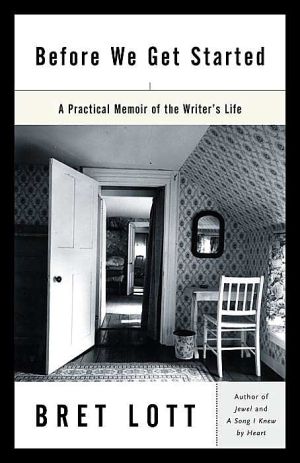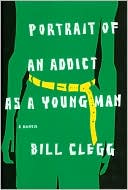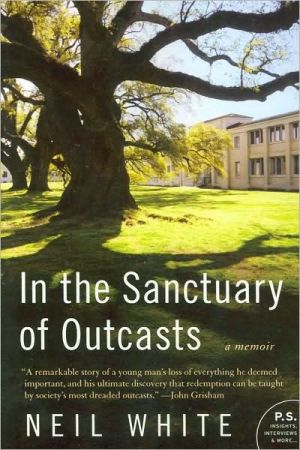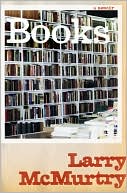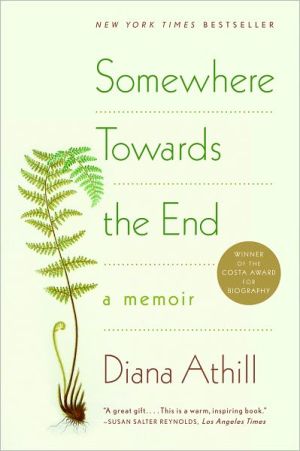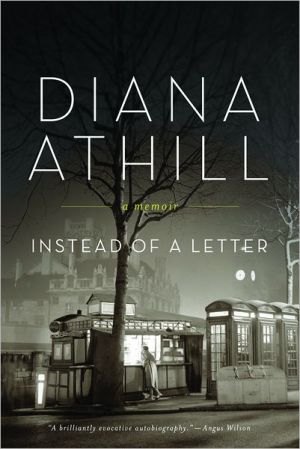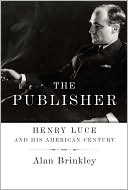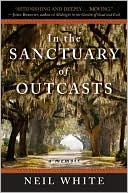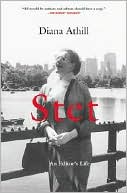Before We Get Started: A Practical Memoir of the Writer's Life
This marvelous guide begins where other books on writing and the writing life leave off. Delving deep into the creative process, Bret Lott reveals truths we scarcely realized we needed to know but without which we as writers will soon lose our way. In ten intimate essays based on his own experiences and on the seasoned wisdom of writers including Eudora Welty, E. B. White, Henry David Thoreau, Henry James, and John Gardner, Lott explores such topics as\ • why write? why keep writing?\ • the...
Search in google:
This marvelous guide begins where other books on writing and the writing life leave off. Delving deep into the creative process, Bret Lott reveals truths we scarcely realized we needed to know but without which we as writers will soon lose our way. In ten intimate essays based on his own experiences and on the seasoned wisdom of writers including Eudora Welty, E. B. White, Henry David Thoreau, Henry James, and John Gardner, Lott explores such topics as• why write? why keep writing?• the importance of simple words• the finer points of character detail• narrative and the passage of time• the pitfalls of technique• making a plan–and letting it go• risking failure–and reaping the benefits• Accepting rejectionWriters travel alone, but Bret Lott’s book makes the journey less lonely and infinitely more rewarding. Before We Get Started will help you make your work as good as it can be: “Pay attention recklessly. Strain to see through the window of your own artistic consciousness in the exhilarating knowledge that there is no path to the waterfall, and there are a million paths to the waterfall, and there is, too, only one path: yours.” Publishers Weekly Lott was a little-known writer of literary fiction until Oprah Winfrey selected his then out-of-print novel Jewel for her TV book club, rocketing him into publishing's major leagues. In this candid memoir and literary handbook, Lott looks back to the hard times before Oprah, when he was forced to juggle raising a young family with a demanding teaching job that left him little time for writing. Recently named editor of the Southern Review, Lott offers via his reminiscences plenty of practical advice on the craft of writing, which for him is intricately bound up with observation and soulfulness. His hero is Raymond Carver, and his literary values echo those of the master; he urges writers to attend to the weight of every word, to the material reality of characters' daily working lives and to the handling of time. Beginning writers will appreciate the heartfelt supportiveness of his counsel as he imparts encouragement and insight. Of wider cultural interest is Lott's critique of the irony hawked by such writers as David Foster Wallace and of the so-called postironic Dave Eggers. Lott advances a case for a new and radically more hopeful genre of fiction. He imparts his own brand of wisdom on writing and the world of publishing with resounding candor and sincerity. (Jan. 25) Copyright 2004 Reed Business Information.
Genesis \ I am sitting in the sanctuary, a few rows from the front, to my left my mom and dad, my little brother, Timmy, in Mom’s lap and sleeping, to my right my older brother, Brad. Brad and I have just received these thin blue books, every kid in the service passed a brand-new copy by men in gray or black suits standing at either end of the pews, stacks of these books in hand.\ The blue paper cover is bordered with green grapevines, tendrils working up and down either side with bunches of grapes here and there; at the top and bottom of the cover those tendrils meet sheaves of wheat in the same green ink.\ The pastor says it is the book of somms, and I wonder what that is, look at the words in black ink centered a little high on the cover. I sound out the words to myself, The . . . Book . . . of, and stop.\ P-S-A-L-M-S. How does that, I wonder, spell out Somms?\ But even if I don’t understand, this is the ?rst Bible—or piece of it—I have ever gotten, and I don’t want to lose this book. I want to keep it.\ So I take one of the nubby pencils from the back of the pew in front of me, nestled in its tiny wooden hole beside the wooden shelf where attendance forms are kept, and beside the larger holes where the tiny glass cups are placed once we’ve emptied them of grape juice.\ And I begin, for the first time in my life, to write my name by myself.\ I start at the upper-left-hand corner, just below the border, but the first word trails off, falls toward that centered title in black as though that title is a magnet, the letters I make iron filings. They fall that way because there are no lines for me to balance them upon, as I am able to do with the paper given me by my kindergarten teacher, Mrs. Pasley.\ I finish that first word, feel in my hand the cramp of so much strenuous, focused work, and hold the book away from me, look at it while the pastor rolls on.\ There is no place for the second word, I see, the last letter of my first name too near the first of the title.\ This is a problem. I know the second word must follow the first on the same line, a little space needed between them. Mrs. Pasley would not approve. This is a problem.\ But there is space above my name due to its falling away, a wedge of blue field that might, if I am careful enough, be able to hold that second word, and I write, work out the riddle of letters without lines, letters that will line up to mark this book as mine, and mine only.\ Then I am finished, and here is my name. Me.\ The first time I have ever written my name myself, alone.\ Later, on the way home, my older brother, Brad, will look at the book, say, “Lott Bret. Who’s that?” and laugh at my ill-spaced effort. Later still I will write my name again on the cover, this time with a blue pen and holding the book upside down. The words will be a little more jaunty, full of themselves and the confidence of a kid who knows how to write his name, no problem at all. Beneath this second round, though, will be the lone letter B, a practice swing at making that capital letter as good as I can make it.\ Later, I will be baptized into the church at age fourteen, a ritual it will seem to me is the right thing to do.\ Later still, in college, I will be born again, as Christ instructed Nicodemus.\ And later even still, I will have written entire books of my own, created lives out of the whole cloth of the imagination. I will have created, and created in my name.\ But on this Sunday, the pastor still rolling on, these two words themselves are enough.\ Only a kid’s scrawl. My own small imitation of God.\ Before We Get Started\ Let me begin this book on the nature and aim of words by saying that I won’t be talking about those glamour words we all get to use now and again, the ones that set our pride spinning at our actually using in a sentence. Abrogate was one of those words I used that, once I’d actually employed it correctly in a sentence, made me lean back and put my hands behind my head, kick my feet up on the desk, and beam at my intelligence. Another one I love is the word limn, which I’ve used a number of times for what I hope was good effect. Once, in a review of a perfectly dreadful novel that centered on hidden incestuous relationships, I had the great good fortune of putting together the phrase “the most Byzantine jamboree of family flesh possible.” That was a glorious occasion, I remember, and I remember, too, me smiling at the monitor for a good five minutes about that. Byzantine jamboree. That was fun.\ But I won’t be talking about those words here. The kind of words I’m talking about are those trench-warfare words, those grunt-work words we oftentimes don’t give a second thought because we traffic in them day in and day out, truck them in and offload them like they were so many yards of gravel being used to rough-pave the road for the brilliant parade of paper floats our ideas and ambitions and intellect will be once this story is done.\ Byzantine jamboree. Man, that was fun.\ No. I’ll be talking about a, the, and this. Those few small words we couldn’t care less about because they are, like the poor, always with us.\ But before I begin holding forth on even that much—those three numbingly nondescript syllables that together only use up three vowels and three consonants—I need to tell you about how I used to live behind a guy who used the term no-brainer way too often. He was a doctor—a gastroenterologist—and because doctors know everything precisely because they are doctors, it was never any surprise to me that everything he encountered was a “no-brainer.”\ And because he used it so often in our everyday exchanges—from the “no-brainer” it was for him to buy a two-year-old Lexus instead of a new one, to the “no-brainer” it was deciding to scope a patient complaining of blood in his phlegm—slowly the term crept into my own lexicon, until for a while I was walking around saying it just as much as he was. It’s a fun term, I found out, infectious for its sharp little shorthand expressing your own acumen and eloquence at once.\ “Can I get a transverse Mohawk?” my older son, Zeb, once asked me. Really.\ “That’s a no-brainer,” I told him. Meaning, I hoped he understood, no.\ “That’s a no-brainer,” I said when Jacob asked if he could ride his bike alone to Wendy’s for lunch one Saturday back when he was in the third or fourth grade. He’d have to cross Highway 17 where Mathis Ferry Road intersected it, six lanes without a crosswalk.\ But I’ve since kicked the habit—or almost. Because, finally, I hate that term. There’s something about it that smacks of condescension, something in it that implies everyone else is an idiot who can’t assess and discuss things as quickly and accurately as you.\ Which leads to how I’d like to begin this book: with a moment a few semesters ago when I almost blurted out, “That’s a no-brainer,” to a student in class.\ This was toward the beginning of things, during the critique of one of the first student stories, all of us doing the old workshop shuffle: what you like, what you don’t, what works, what doesn’t, what’s at stake, what’s missing, blah blah blah, all in the hopes not just to put a Band-Aid on the story at hand but to try to speak of the larger notion of writing ?ction. There was a particular point I wanted to make about the way the student used a noun and its synonyms, and how its usage called into question the verisimilitude of the entire story, because it called into question the authority of the writer herself.\ Within one page of a story told in the first person, the narrator had referred to her mother as her mom, her momma, and her mother. I pointed this out to the class as being a matter of consistency of both point of view and of voice—that is, in order to get a first-person narrator nailed down so that the reader can begin to get to know the character and thereby come to whatever experience the story might o¬er, the writer needs to use language consistently, in this case decide whether the narrator calls her mother “mom,” “momma,” or “mother.” Of course there are lots of different considerations that go into making such a blanket statement: What if the narrator is fragmented herself, is unreliable and so does not in fact know any kind of consistency in her own voice? What if her mother is to her three persons at once, a kind of matriarchal holy trinity? What if she calls her “momma” in dialogue, but thinks of her as “mother” when relating the story here on the page? What if what if what if? Certainly extenuating, qualifying circumstances are always at work. But the story we were reading carried with it none of those free passes to arguing with the teacher.\ I made this point about the noun and its usage, and made it pretty well, I thought. Hey, I’d been doing this for a long time. I’d made this little speech enough times before. They’re getting it, I thought.\ And then I glanced to my left to see a student with her nose wrinkled up, as though smelling something false. She wasn’t one of those kinds of belligerent students, either, those sorts who think they know something going in and so rebut everything that comes out of your mouth in order to hold together the sad and tattered last shreds of the nomad’s tent their understanding of writing has become. Those students you hope and pray will not darken your door because when they do, the semester can stretch out before you like the Hundred Years’ War. No, she was a fine writer, seemed sensible, and so I asked her, “What’s wrong?”\ “I don’t see why that matters,” she said, and shrugged, still with her nose wrinkled up.\ This was when I very nearly said, “That’s a no-brainer.” Instead, I caught myself, and went on to beat her and the rest of the class about the ears with the blunt instrument of my further instruction, as I am wont to do when somebody doesn’t get what I want them to get.\ I’m going to pause a moment or two here to quote a little piece of a lecture I gave during the first residency I spent teaching in the low-residency M.F.A. program at Vermont College, back in 1994, this in the hopes of illuminating why this particular moment in my teaching life—an undergrad’s pooh-poohing my point about nouns—was one that carried a bit more weight than it might otherwise seem.\ The lecture was on the architecture of Jayne Anne Phillips’s Machine Dreams. But the section I’m going to quote doesn’t have anything to do with her book; instead, it’s a passage I hope will relate the sort of self-deluding snobbery bred by looking at words as though their examination one by one were beneath us. Or at least beneath me.\ When I was in grad school at UMass Amherst I took a seminar in Virginia Woolf from Lee Edwards. There were about ten or eleven of us in there, and it just so happened that that semester there was a centennial celebration of Woolf’s birthday down at Pembroke, a three-day shindig at which plenty of papers would be presented on what was becoming, in no small part due to Lee Edwards’s teaching capabilities, our favorite writer. We decided to go down there for a day of the festivities, and piled in two cars, drove all the way to Providence. We got lost once in town, finally found the right building, and walked in, all of us, on a panel already in progress. I don’t remember who the heck the presenter was talking up there, but it soon became obvious to each of us that we had no clue what she was saying, only that it had to do with The Waves. When she finished, the crowded room applauded enthusiastically and we all sort of looked at one another, shrugged.\ The next presenter stood and began reading her own paper, this one about the use of personal pronouns in To the Lighthouse.\ That was when we stood as a group, and ?led out. Once in the hallway, we shook our heads, perplexed at the lifeblood being sucked out of books we loved happening just inside the closed doors behind us. We found a pub down one or another street, and all sat at a table, and talked about the books we’d been reading for class, why we loved them, why not. Then, disillusioned at the proceedings but glad for each other’s company, all that talk, we piled back in the cars, drove on home to western Mass.\ The talk, of course, let me and each of the others simply come to know more fully those books, and how and why and when they moved our hearts. Hearts moving, by the way, the reason any of us ought to write.\ Well, okay. I’ll give myself that last line. It seems true enough, these many years later, that moving the heart is the reason we ought to write. But I can’t help but think how smug I sounded, and how unwilling to learn I was, not just back in 1983 when we did all that, but as near to now in my own history as when I gave that lecture, in 1994. Because the longer I write—and this is the one sure thing I know about writing—the harder it gets, and the more I hold close the truth that I know nothing.\ I can’t help but think of how smug I was to very nearly blurt out to that student, “That’s a no-brainer.”\ Because, if you want to write, there really is no such thing as a no-brainer. Flannery O’Connor wrote, “There’s a grain of stupidity that the writer of fiction can hardly do without, and this is the quality of having to stare, of not getting the point at once.” I think what she’s saying is that if one begins to see the world and its dilemmas and desires and questions and heartbreaks and, yes, noun forms as being no-brainers, one has begun to lose the necessary wonder at and reverence for what is eternally unfolding around us that it takes to be one “upon whom nothing is lost,” as Henry James exhorted writers to be.\ Wonder and reverence, I want to say before I get started, are the twin dynamos that generate the art of writing.\ To look at something without wonder and reverence—to see things as being no-brainers—is to dismiss deliberation; dismissing deliberation eliminates the possibility for reflection; to eliminate reflection is simply and fully and sadly to reject the possibility of discovery. Of course the difference between a and the and this is a vast one. Of course words matter. Of course we must choose carefully.\ But why is there such a vast difference? And given the endless valley of bones the same old words used again and again and again by writers far superior to ourselves truly is, we writers no more than buzzards picking over the same words used by Faulkner and Melville and O’Connor and Hawthorne and Welty and Baldwin and all of them—given all those words, and our pitiful little attempts at recycling them in the hopes we might create our own Holden Caul?elds or Lily Briscoes or Boo Radleys, attempts that most often result not in literature but in the same sort of recycling that goes on in the lower intestines of those same buzzards—well, given the same words as always, why must we be so careful?\ Why do words matter so?\ And in thinking about the why, I have been led deeper and deeper into this whole thing called writing, and deeper and deeper into what it means to be a writer altogether, until I have arrived here, now, writing this thing down for you and me both, discovering as I sit here that there is, finally, too much to say about this topic. Before I get started here, I want to say that everything—everything—regarding writing gets right down to the di¬erence between a and the and this. The more I think about it the more I am convinced that there really is nothing else to talk about.\ Because all things are informed by the word one writes next, and the one after that, and the one after that. All things come down to the di¬erence between one word and another. All things: point of view, tone, characterization, body language, setting, dialogue, theme, symbols.\ Meaning.\ Let me start with saying the word means everything.\ But first, let’s get back to mom, momma, and mother.\ Here I was, making a case for the importance of the use of noun forms in a story, when in my own life I’d walked out of such a talk on one of my favorite writers because I in my ignorance believed myself to be superior, to be above these mat- ters of pronouns, talk of which I asserted was sucking out the lifeblood of the work of Virginia Woolf, when I in my ignorance did not know that in fact the use of the personal pronouns was the lifeblood itself. The use of the word is the lifeblood. All this brought home to me, the teacher, nearly twenty years later by a student story in which personal pronouns were used willy-nilly. Mom, or momma, or mother matters, and the wrinkling of a nose by an undergrad sniffing out the ponderous notion of such a statement reminded me of none other than me, standing and filing out of a lecture hall at Pembroke with a disdainful posse of young writers bent on making certain they—we—I—knew what was important about writing: bar talk. Not the use of pronouns.\ And it just so happened that in that particular class meeting we had just finished talking about “Kiss Away,” a Charles Baxter story from the collection Believers, one of the standards I use for my classes. For some reason there came to me a sentence from that story that exhibited precisely the importance of what I mean when I say the difference is vast between the and a and this.\ Here’s the sentence: “She had worn a rather formal white ruffled blouse with the palm tree pin, and a dark blue suit, and she had a semi-matching blue purse, at the sight of which Walton had announced that Jodie had ‘starched notions of elegance,’ a phrase he didn’t care to explain.”\ The sentence seems innocuous enough in and of itself, and describes what she has worn to her first job interview since meeting Walton, a strange and sort of mystic character she spots from the sleeping porch of the house she’s living in at the beginning of the story. It is my hope you have read or will read the story, and so I won’t say much more about this or any of the other stories I will mention in terms of intricacies of plot. Suffice it to say she has dwelt inside a kind of lethargic sense of self that, until meeting Walton, seemed destined for paralysis.\ Then here is this word the before the words palm tree pin.\ The rest of her attire here is brought to us courtesy of the lonely and shivering indefinite article a, but the palm tree pin is delivered by the confident, even cocksure definite article the.\ Here, in this single word, is the fulcrum of the story, the moment in which the story takes its turn for its fruition, its revelation, its meaning. We have neither seen the palm tree pin before this nor see it again afterward, yet in her selecting the palm tree pin, an object made intimate by its being labeled with the definite article and not the indefinite, we see that in fact there is something deeply at stake in her choosing to get a job, or at least choosing to get out of the house in order to pursue one. The palm tree pin signals us that the pin has some kind of importance to Jodie and hence is a sign of hope in her heart, however small, that her life will improve.\ She doesn’t get that job. She doesn’t get the next, or the next, but finally lands one. Getting a job is not the key to the story, and her gainful employment is not what finally brings her to love and security in the midst of a dangerous world, the same world, in fact, she inhabits at the beginning of the story.\ But it is the the here that ushers in the security she finds only after making herself vulnerable to an indefinite article of a world, that cold and anonymous world she has inhabited just before the the appears.\ This story, I submit, relies on the.\ I talked to Mr. Baxter just now—Friday, June 23, 2000, at 5:35 p.m.—to see if I was on the right track in all this. He is my favorite living writer, I do not hesitate to say, and has been a friend for many years—I even had the privilege of shoveling his driveway of snow one February afternoon while I was a guest at his house, just so I could impress my readers in some future essay by writing, “I shoveled Charlie Baxter’s driveway of snow one February afternoon”—and so I figured I would go to the source, just in case I was making too much of this all. I shot the breeze with him for a while, then presented to him what I have here, to which he responded, “Whatever you tell those people, you tell them I said, ‘Bret, my friend, you are right as rain.’ ” So there.\ But he also went on, because in fact understanding words and their meanings does matter to writers, to say that when he wrote that sentence he was using the pin “as a means to show her increasing identification with the objects of her own life, and so her increasing identification with herself in light of this new relationship with Walton.” That is, in the pin she is coming to see herself, to know herself again. She is coming to life.\ So, you may be wondering, what does this example have to do with my assertion that everything in a story has to do with the difference between a and the and this? To begin with, there is plot: this day she chooses a pin that has meaning to her, and in choosing that pin she is making herself vulnerable to defeat, to not getting a job, but she goes forward regardless; as for character development, she is increasingly identifying herself in relationship to the objects she owns, thereby showing us the growth in her character; as for how this informs point of view, because this word the carries no associations with it that would reveal the pin’s actual history to us—where she got it and how—we see we are so deeply embedded in her point of view that in fact there is no need for associations. Just as when one walks into one’s bedroom and looks at the dresser for the keys or tube of Chap Stick or half-roll of cherry Life Savers before walking out of the house, one doesn’t in that moment necessarily stand in silent pontification upon the memories and histories all the objects littered across the dresser might elicit at some other point. We are instead in her point of view, and in deep: this pin means something.\ I could have gone on with that story for the rest of the class period, but there came to me, in the blessed way things sometimes come to teachers in the trench of fighting the good fight getting your students to see can and always will be, the fact we’d just recently read Flannery O’Connor’s story “A Good Man Is Hard to Find,” and—and you can believe or not believe this came to me, too—a usage of the indefinite article a that, I believe, serves as a fulcrum as well. There’s a place in the story, I remembered, where that single letter exists as a dagger to the base of the spine in what it shows not only of the reality of death, but also a transcendence—or, depending on your interpretation, debasement—of the grandmother’s soul.\ This is one of my favorite stories ever; its presence is never far from mind whenever I’m talking about short stories. There is contained in it humor, tragedy, physical comedy and the play of words, notions of Grace and Jesus and the stark truth of how close we all are to our own mortality not just of body, but more importantly of soul.\ But before I got to all that with this group of young writers impatient to get back to the student’s story being critiqued, and with me fully aware of the necessary breach of protocol leaving a story splayed open there in the middle of the room, I pointed out a few images, and the point of view taking them in.\ The first moment occurs immediately after the accident precipitated by the grandmother’s cat erupting from the basket, where she has secreted it away. To draw attention away from the fact this whole damn thing is all her fault, the grandmother says, “I believe I have an injured organ.” Then O’Connor writes, “Bailey’s teeth were clattering. He had on a yellow sport shirt with bright blue parrots designed in it and his face was as yellow as the shirt.”\ Here we have, pretty late in the story, the first mention of this ghastly yellow shirt, its color inextricably tied to the fear and anger and perplexity and simple surprise of adrenaline of this moment. The second mention comes after the grandmother, who can’t keep her mouth shut, identifies The Misfit, thereby making it inevitable that she and the rest of the family will be killed.\ O’Connor writes, “ ‘Listen,’ Bailey began, ‘we’re in a terrible predicament! Nobody realizes what this is,’ and his voice cracked. His eyes were as blue and intense as the parrots in his shirt and he remained perfectly still.”\ Here we are brought, through the shirt, not anger or exasperation, but dead, paralyzed, panicked fear, fear so deep and so intense that the head of the household cannot finish his sentence. He knows what is coming. He knows.\ A few lines later arrive the grandmother’s last moments of pleading lucidity in the world she inhabits before what will surely come to pass, a world shattered by the single pistol shot in the woods followed closely by another, a world of sin and depravity she thinks will be solved by the simple act of prayer.\ But The Misfit will have none of it, and then this:\ Bobby Lee and Hiram came ambling back from the woods. Bobby Lee was dragging a yellow shirt with bright blue parrots in it.\ “Throw me that shirt, Bobby Lee,” The Misfit said. The shirt came flying at him and landed on his shoulder and he put it on. The grandmother couldn’t name what the shirt reminded her of.\ A yellow shirt.\ That single letter a serves double duty here. In the first place, the chilling effect of its being unnamed and unknown—it is only a shirt—when in reality it was worn by her son only moments before, serves, I hold, as that dagger at the base of the spine: prior to this moment the violence of this all has existed first in the abstract—the escaped convicts arrive, are identified, words are passed by the son as to the possibility of what might happen, offstage the pistol reports shout from the woods—only to have that violence brought front and center, no argument or doubt or relief from its impending presence in the grandmother’s life about it: her son’s shirt is now a shirt. No one’s.\ This letter a also reveals her character in that we see this all through her eyes, through her sensibilities, the indefinite article illuminating who she has become in this moment that tests, finally and utterly, her faith in and understanding of Grace. There is no longer any recognition, no longer any evidence before her of her son’s life. And here is where I believe that transcendence—or debasement—of her soul occurs: she now replaces her son with The Misfit himself.\ All this pinnable on that letter a.\ —\ And finally, in this particular classroom on this particular day at the end of what had seemed a particularly unremarkable workshop, I remembered yet one more instance of the importance of these small words, this from another story we had all read: Raymond Carver’s “Where I’m Calling From.”\ I could have spent that entire long afternoon simply talking about the craft of this story, the way the point-of-view character—never named—tells J.P.’s story as though inhabiting it were a means to avoid the reality of his own sorry life. I could have talked, too, about the use of the single personal pronoun me, uttered only three times in the story.\ The word appears twice near the end of the story, when the narrator, still and always nameless, finally engages himself in a memory—a good one—from his past life, a moment when, sober and naked, he stands before the landlord outside his bedroom of a Sunday morning, the landlord setting out to paint the house before the day gets too hot, the narrator’s wife laughing and calling the narrator back to bed. Carver writes, “And at that minute a wave of happiness comes over me that I’m not him—that I’m me and that I’m inside this bedroom with my wife.” This usage of the word me is a precursor to the last word of the story, when the nameless narrator ?nally knows who he is: “It’s me,” he says, and lays claim to his own life, the reality of it and the need for his own moving, however tentatively, out into it. He calls neither his girlfriend nor his wife, please note. He doesn’t actually do anything here. He only recognizes himself.\ But there is also an intriguing and, again, fulcrumatic, if I may invent such a word, use of one of those grunt-work words I’ve been talking about, this time the word this.\ “Imagine this kid!” the narrator exhorts us at one point in the story in describing the loudmouth son of his girlfriend. That word this carries with it no value whatsoever, the word existing in this context and throughout the story only as a kind of unceremonious shorthand adjective for virtually everything and everyone in the story, from Roxy who “plants this kiss” on his lips to the fact of Tiny’s seizures haunting his own waking life with the possibility of lost control: “So every time this little flitter starts up anywhere, I draw some breath and wait to find myself on my back, looking up, somebody’s fingers in my mouth.”\ Yet in that same last paragraph as the narrator’s declaration of identity, there is a strange and wonderful turn from the loose change that word this is used for throughout, when suddenly, in identifying himself, the narrator says, “There’s no way to make a joke out of this.”\ Suddenly and without warning, the familiar inarticulate adjective becomes the entire noun of his present life, a noun— a life—that is unforeseeable at this particular moment of light, but which is a noun nonetheless. The word this precipitates, then, his ability simply to lay claim to being me, and moving forward into whatever gray world he sees he has no choice but to move into next.\ This is the me of who he is now.\ And so, for all these reasons, I’d like to start this book with the suggestion we be careful with the word, no matter how “small.” I propose that in caring for the word, in all its light and texture and density and purpose, we see ourselves as the servants to the word we are called to be as writers. I would like to begin by suggesting that even the single letter a is worthy of our carrying, through the long and arduous and ful?lling and ill-attended parade our writing lives will be, as though it were a golden crown on a tufted velvet pillow, and not so many yards of gravel dumped on a roadbed. Our ideas, our ambitions, our intellect truly are, after all, nothing more than paper floats. The word came before us, and will live on after us, whether that word be a single timorous letter or a polysyllabic fiesta.\ But should the sheer weight even the word a can carry daunt us? Should we now hold up each use of every word to the cold light of all of literature before we even put it to pen, or at least commit it to the electronic impulses tra?cking in the yes-and-no language of our computers, 1, 0, 1, 0, 1?\ Well, 1, and 0. Yes, and no.\ Because though I have pointed out these instances of what might seem micromanagement of the word by the author, I do not for an instant believe that these writers spent much time in the moment of passion and joy and sorrow and opacity and understanding that is the moment of creation. I may be wrong, but I am willing to venture that it was through their faith in the indescribable and unteachable moment of inspiration—and by this I mean both that moment of divine guidance or influence exerted directly on the mind and soul of humankind, and the act of drawing air into the lungs—that these writers proceeded, as carefully and thoughtlessly as we each of us breathe in and breathe out, with the words chosen, seeing those characters they had created no longer through a glass darkly, but in the firm and brilliant light of truth. They saw these characters in their own moments of truth, and let reach the page the smallest scratches of meaningful ink: a, the, this.\ Regardless to whom one may ascribe those moments of inspiration, inspiration they will be, and unteachable they will remain.\ But the weight of words should not—cannot—be reason enough to cease carrying them. Nor should the fact they have been used, and used better, by so many great writers paralyze us. Faced with that endless valley of bones we have available to us, we must do what Ezekiel did: we must bring those bones to life. Ezekiel’s vision can teach us a lot about writing, though I’ve never seen it on any creative writing course’s reading list. Here are his words:
\ Publishers WeeklyLott was a little-known writer of literary fiction until Oprah Winfrey selected his then out-of-print novel Jewel for her TV book club, rocketing him into publishing's major leagues. In this candid memoir and literary handbook, Lott looks back to the hard times before Oprah, when he was forced to juggle raising a young family with a demanding teaching job that left him little time for writing. Recently named editor of the Southern Review, Lott offers via his reminiscences plenty of practical advice on the craft of writing, which for him is intricately bound up with observation and soulfulness. His hero is Raymond Carver, and his literary values echo those of the master; he urges writers to attend to the weight of every word, to the material reality of characters' daily working lives and to the handling of time. Beginning writers will appreciate the heartfelt supportiveness of his counsel as he imparts encouragement and insight. Of wider cultural interest is Lott's critique of the irony hawked by such writers as David Foster Wallace and of the so-called postironic Dave Eggers. Lott advances a case for a new and radically more hopeful genre of fiction. He imparts his own brand of wisdom on writing and the world of publishing with resounding candor and sincerity. (Jan. 25) Copyright 2004 Reed Business Information.\ \ \ \ \ Library JournalIn this engaging memoir, Southern Review editor and novelist Lott takes on the art of writing by focusing on creativity and guiding the writer to certain realities of the craft. In essays taken from his own life and experience, Lott explores why writers write, the importance of simple language in writing, character development, technique, and other finer points of the craft. He also draws from the knowledge and wisdom of such writers as E.B. White, Eudora Welty, and Henry James, to name a few, and talks about his own feelings on the success of his novel Jewel and his high regard for J.D. Salinger's The Catcher in the Rye. Highly recommended for anyone interested in the art of writing and all libraries.-Loree Davis, Broward Cty. Main Lib., Fort Lauderdale, FL Copyright 2005 Reed Business Information.\ \
